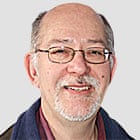Is Israel sacred? Rabbis hold their peace

Rabbis Speak Out: A Meeting Organised by IJV
By Diana Neslen and Sylvia Cohen
October 2015
On 1st October Independent Jewish Voices [1] offered a discerning audience the opportunity to hear Rabbis speak out on topics of concern and contention within the Jewish community. It was the chance to discover how some of the leaders of Jewish congregations address the burning issues of the day, namely social justice and the Israel/Palestine conflict. We went in hope, but had too often been disappointed in the response of Rabbis to the major issues confronting Jewish people today, to have great expectations.
Four Rabbis accepted the invitation to speak out at this meeting: Rabbi Danny Rich, Chief Executive of Liberal Judaism, Rabbi Charley Baginski of Kingston Liberal Synagogue, Rabbi Howard Cooper of Finchley Reform and Rabbi Jeremy Condon of New London Masorti Synagogue. Reverend Giles Fraser chaired the event.
In their opening remarks the Rabbis stressed their commitment to social justice through the influence of the family, of Rabbis, and of Jewish thought; the latter strand was most clearly expressed by Howard Cooper who spoke of the prophetic tradition. The Jewish prophets of old knew that their task was to “afflict the comfortable”, to shock people into thinking about their moral behaviour and ethical stance. This role is not exactly prevalent in the rabbinate of today, at least not in their approach to Israel and its Occupation of the Palestinian territories. So it was perhaps with hope of hearing Rabbis speak out against this oppressive injustice that we might assume the audience came.
However, the Rabbis’ ability to speak out, to express the responsibility of Jews to a just society, help for the needy, refugees etc., seemed in general to stop short at any cogent critique of Israel’s actions. They talked about the necessity of examining all issues to balance competing claims; it seems that discussion of Israel’s policies vis a vis Palestinians – the elephant in the room – is not a strong contender for the attention of either Rabbis or the congregations. Three of the Rabbis spoke of a need to be circumspect in order to “keep the conversation going”, to keep the conversation about Israel “in the family” (i.e. keep any criticism away from non-Jews), and to tailor their language so as not to offend congregants. Clearly, all the Rabbis are passionate about their pastoral role, and the care of their congregations.

Howard Cooper is a rabbi and psychotherapist, and the author of The Alphabet of Paradise: An A-Z of Spirituality for Everyday Life
However, when that passion is carried to the point of keeping judicious silence about potentially upsetting issues of injustice because a dying member might be unable to take spiritual comfort from a Rabbi holding “noxious” views, one begins to wonder how far circumspection will take any of us. Howard Cooper was something of an exception to this chorus of tact, evasion, compromise and the somewhat interesting injunction for nuanced argument in a situation of extreme imbalance of power, where tanks and guns face unarmed civilians.
His adherence to the prophetic tradition in Judaism offers some hope that he, at least, is able to speak about injustice and wrong doing in a way which will reach and startle his congregation. He was also honest enough to imply limitations to speaking out engendered not so much by a need for tact as by the fact that Rabbis are employed by their congregations – although he still maintained that he says what he feels is right to say, regardless of its unpopularity. He has learnt the hard way how to tailor his criticisms of Israel to a congregation anxious to be reassured.

The audience immediately picked up on the difficulties for the Rabbis of speaking out fully, and also challenged the resounding silence last year during Israel’s attack on Gaza; the facts are that Israel is attacking a people who are unarmed and defenceless, why can they not speak out against that immorality? As part of this the Panel was asked to comment on the brave new rendition of the solemn Yom Kippur prayer Al Het by Rabbi Brant Rosen, which incorporates our collective sin of support for Israel’s increased militarism, continuation of the Occupation and oppression of the Palestinians [2].
However, while expressing some contrition over the lack of Rabbinic response to Gaza the idea of using Brant Rosen’s Al Het prayer to express atonement was studiously ignored. On the contrary, instead of thinking with us about the racist and oppressive nature of the state, and how it might be properly addressed with mainstream Jewish communities, the Rabbis moved into defensive mode, telling us that there are many good Israeli activists and, rather than condemning a society where fully 92% [3] of the population supported the assault on Gaza, drew our attention to the minority voices of reason, like B’Tselem, Breaking the Silence and the newspaper Haaretz, that in face of abuse, continue to bring the facts to public knowledge. There seemed to be a desperate need to find some redeeming feature in today’s Israel. Instead of condemnation, they offered balm.
This is no longer satisfactory and indeed seems patronising, particularly, to an audience wholly conversant with the contemporary Israeli scene. It seemed as if either the Rabbis had misjudged the audience or believed that somehow they were providing a balance between competing claims. They need to be reminded of the Desmond Tutu quote:
The question of the difficulty of defending Israel together with the anger that defence of Israel arouses in people committed to human rights, seemed to make some in the audience who defend Israel feel that they were suffering antisemitism; the fact that this confusion between attitudes to Israel and antisemitism happens on both sides of the “divide” was acknowledged. However, when the question of antisemitism came up again, Rabbi Condon made the very disturbing comment that there are false accusations of the killing of Palestinian children which he referred to as “blood libels”.
This statement was backed up by no references and went unchallenged by either the audience or the panel. There is compelling evidence that Israeli forces shoot to kill Palestinian children and so far no inference exists to undermine the copious data provided by both films and testimony that this is a lie. The blood libel was just that-a libel. It was a relief when Howard Cooper referred to the need to examine Jewish racism.
He went on to confess that he is a ‘ Diasporist’ who sees Judaism as standing on three pillars: God, the first, then the Torah and finally Israel. He believes that these address concerns he has that the diaspora is now in thrall to a kind of worship of Israel, that the values of religious Judaism have been turned upside down, putting Israel over God and Torah. Thus, the Jewish community is again in danger of an idolatry which as the prophets and the Rabbis have always warned, can destroy the Jewish people.
Members of the audience were happy to be informed by others of the existence of a non Zionist congregation. Rabbi Danny Rich was pleased to confirm that this particular non Zionist congregation is a member of the Liberal Jewish family.
Doubtless, all the Synagogues set great store on Jewish education and Rabbis are above all educators. One wonders therefore how they teach the youth and whether young Jews are encouraged to construct their identity round an idealised dream country, a country called Israel in which they do not live. If this is so, as we strongly believe it is, then the task ahead for the Rabbis is to revisit Jewish education and try to use it to insert moral values and not nationalist ones. If they do so then finally they will be able to encourage the next generation to separate the strands between being Jewish, being Zionist and being Israeli.
The Rabbis suggested that it would be a good idea if those of us critical of their stance joined congregations to challenge mainstream opinion, but it is our view that the Rabbis should first encourage us to hold our meetings in Jewish venues to show that they accept our views.
The Liberal and Progressive synagogues have led the way in this regard. But it is almost impossible for us to get a hearing in mainstream Jewish venues. We believe that congregations need to listen to uncomfortable views rather than endeavour to silence them, by refusing dissident Jews a platform in most Jewish venues.
We believe that the Rabbis should follow the prophetic tradition and stand out against injustice, loudly and clearly, particularly when Jewish communities refuse to condemn injustice carried our in our names. Until that happens, we shall continue to feel short changed by the Rabbinic leadership of our communities.
Notes
1 IJV Presents: Rabbis Speak Out, 1 October 2015, 8 PM, Hampstead Town Hall
2] A full version of this can be found at A communal confession on Yom Kippur, Martk Ellis, Mondoweiss, September 2015
3] Poll: Overwhelming Majority of Jewish Israelis Say Gaza Op Justified
